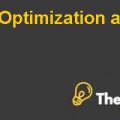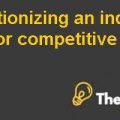Motivation Essay Case Solution
Introduction:
Employee motivation, which affects people's attitudes and behaviors at work, is a crucial component of organizational dynamics. For modern managers and organizations, it is crucial to understand what motivates individuals to perform at their best and how these motivations change depending on both personal and environmental factors.
Effective employee motivation not only increases their level of dedication and job satisfaction, but it also holds the key to better overall performance, which in turn is in line with organizational goals. In this paper, we explore the complex realm of employee motivation, drawing on key ideas from organizational behavior (OB) to illuminate the complex interaction between variables affecting motivation.
In the discipline of management, employee motivation is a topic of great interest. It is a dynamic process that involves more than just financial incentives; it also takes into account individual differences, human psychology, and how attitudes and contentment at work affect performance. To recognize the diversity within their teams, managers are entrusted with understanding the distinctive motivations of their personnel.
The development of engaging work arrangements, improving job performance, and ultimately accomplishing corporate goals all depend on this recognition. In this paper, we will explore the many facets of employee motivation and analyze the numerous factors that affect it. We start by outlining the goals of the assignment and outlining the tasks at hand. After that, we go into the details.
Data Collection and Sample Variation
Comparing the Responses and Rationale for Differences:
- Organizational Level: Sarah holds a managerial position, which can be motivating because it gives her greater duties and decision-making power. The possibility of career advancement may inspire John, who is still very new. A high level of devotion and a varied set of motivators tied to sales targets are indicated by Alex's extended stay and senior position. Sarah's capacity for influencing decisions and her sense of accomplishment as a manager are probably the two main contributors to her job happiness. She has the opportunity to significantly influence the organization and its objectives thanks to her managerial position. Her circumstances, such as being married and having children, may also contribute to her job happiness since they give her a stable and fulfilling personal life, which in turn can have a beneficial impact on her career. Her function is aligned with the organization's performance evaluation system, which offers a precise framework for assessing her managerial performance. Her motivation, satisfaction, and dedication are facilitated by a combination of her authority, personal stability, and the alignment of the evaluation system.
- Personal Circumstances: Sarah's role as a married parent might influence her desire for stability and a higher sense of responsibility. John, as a single individual, may prioritize career development and work-life balance differently. Alex's situation, being divorced and without children, might allow him to dedicate more time to his career, which can affect his motivation and job satisfaction positively.
- Job Roles: Each employee's job role influences their motivation and job satisfaction. Sarah's managerial responsibilities may come with a sense of impact, while John's technical challenges could drive his motivation. Alex's senior sales role is tied to sales targets and commissions, impacting his job satisfaction.
In summary, the differences in attitudes and motivation among the three employees can be attributed to their organizational levels, personal circumstances, and job roles. Understanding these differences is essential for managers to tailor their motivational strategies effectively and enhance employee satisfaction, commitment, and performance.
Evaluating the Performance Evaluation System:
To evaluate the effectiveness of the organization's performance evaluation system, we inquired about this system throughout the interviews with our three hypothetical employees. Each employee's perspective on the performance evaluation system provides valuable insights into how it influences their motivation and job attitudes.
Sarah - Managerial Level:
Sarah, as a manager, shared that the performance evaluation system in her organization primarily relies on quantitative metrics, such as achieving departmental goals and team performance. She indicated that this system aligns well with her role and responsibilities, providing a clear framework for evaluation.
The alignment between the evaluation system and her role contributes to her motivation and job satisfaction. However, she mentioned that it might not work as effectively for employees in roles with less quantifiable outcomes.........
Motivation Essay Case Solution
This is just a sample partial case solution. Please place the order on the website to order your own originally done case solution.











